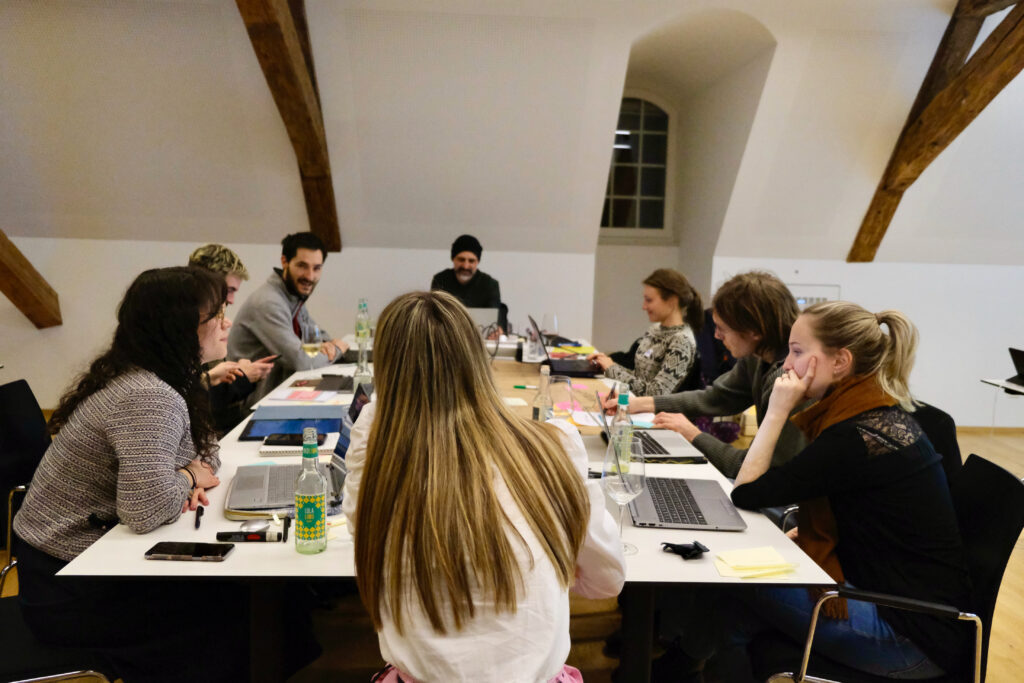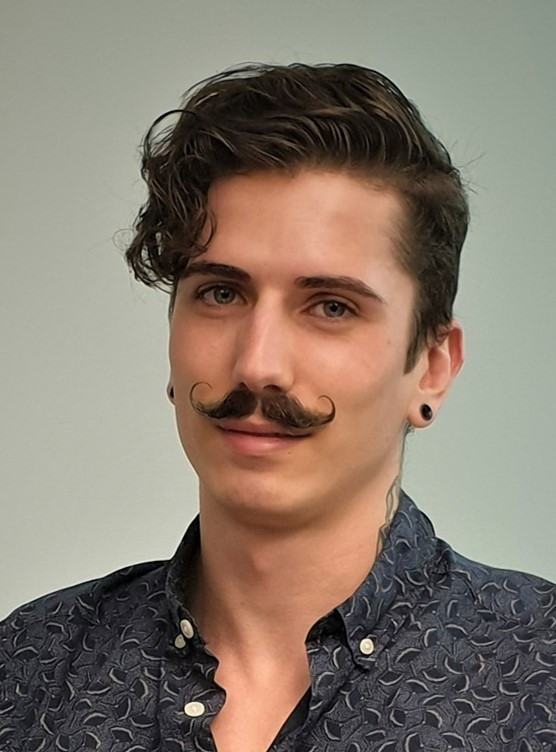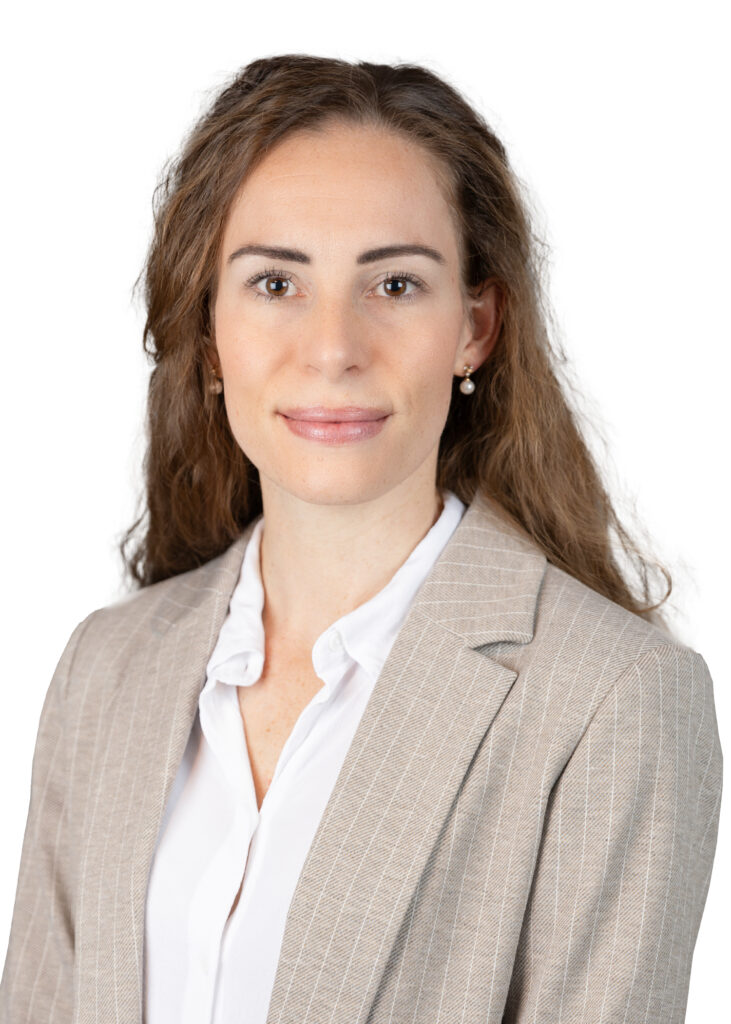This blog article on care work is part of a four-part blog series created with masters students receiving a Hirschmann foundation scholarship. The goal for the multidisciplinary group of future decision-makers was to develop visions on where sharing economy approaches could be implemented to improve our society as a whole.
Authors: Loïc Abbet, Aws Al Zubaidi, Victor Castillo Luna, Matthias Foff, Leandro Mancina, Fabienne Meyer-Akraa, Soraya Thashima Rutschmann, Marco Güntert, Salome Heilig and Lily Boateng
Cover Image: Linn Nora Henz (2023)
Bringing together 27 young thinkers from a variety of academic fields, we used Policy Kitchen to dive into sharing economy approaches. The result is a four-part blog series on areas of life where we can share more today, to leave behind a world worth living for the generation of our grandchildren. This project is made possible by the Hirschmann foundation.
The socio-cultural construction of family determined by biological kinship has been naturalised as the safe space of each individual. But the spaces we inhabit daily are not limited only to the home as a place defined by blood relations. The constant human search for empathy and care evokes in us the need for a space to belong to. The notion of belonging could be extended to spaces determined by individuals with common experiences, affinities and practices that sensitise them to form and move as a community. This blog post argues that solidarity, attentive citizens and strong communities are key factors for a sustainable society and a thriving social system.
Limitations of our health care systems
There is an urgent need to empower humans to form new kinds of communities, where individuals can experience support among peers who have common experiences – beyond blood relations. Such is the case of people who, confronted with common needs or doubts, can support each other in order to alleviate the weight of feeling alone, which could even reduce suicide and crime rates.
A prime field of application for such strategies is the ageing population in Switzerland: demographic changes, primarily driven by the ageing Baby Boomer generation, bring about increased health issues and social isolation. This leads to a higher dependence on healthcare and social institutions. Simultaneously, the prevalence of chronic and non-communicable diseases within society are on the rise, further increasing the burden on the healthcare system. The existing shortage of healthcare professionals exacerbates these problems. These factors result in individuals who could and want to live at home to increasingly rely on healthcare services, in turn causing avoidable costs. Healthcare personnel often lack the resources to address the social aspects of patient care, leading to uncoordinated discharges and a lack of follow-up care.
Strengthening social structures by sharing care work as a community service
The solution lies in closing the gap between social and healthcare structures. Advanced practice nurses and community workers can function as bridges by coordinating the healthcare process and ensuring appropriate community care. This prevents unnecessary returns to the overloaded healthcare system and promotes independence and quality of life for individuals of all ages. Future measures require person-centred discharge planning and flexible follow-up solutions. Additionally, community offerings should be expanded and better tailored to society’s needs to combat for example social isolation. Many people in society require assistance, whether it’s on a health or social level.
However, in overloaded healthcare and social systems, this support is increasingly lacking. Expressing emotional needs is challenging for many people. Asking your neighbours for help because you have a problem in your apartment seems only natural – but would you also ask them for help because you’re feeling lonely? Expressing one’s needs without shame must become natural in order to provide preventative support within society. Social and health support, which is often provided by relatives, needs to be better recognized and rewarded, as today’s social structures sometimes hardly allow this.
How do we get there?
„The task is to make kin in lines of inventive connection a practice of learning to live and die well with each other in a thick present“ – Donna Haraway, Staying with the Trouble.
Imagining we tackle the hurdles of making kin beyond blood relations, building robust communal structures and learning to ask for help when needed and also being able to receive it, we are still faced with the lack of knowledge concerning how to care for each other. We can share housing and resources, but we also have to establish forms of sharing and upholding know-how. It will never be advisable to do an open-heart surgery on your kitchen table, but a community should be able to provide easy access care such as, but not limited to: child care, elderly care and low-threshold medical knowledge such as first aid, giving injections, resuscitation, being able to recognize symptoms of mental illnesses and intervene accordingly. If we acquire these skills and heighten our sensibility not only for our own needs, but for those of others as well, we will not only relieve the institutional healthcare structures, but we will create a more sustainable way of living with each other.
All of us can suddenly rely on the help of others. Society must assure conditions under which needs are taken seriously and solidarity can flourish.
We thank the Hirschmann foundation for their kind support of this four-part blog series on sharing economies.







